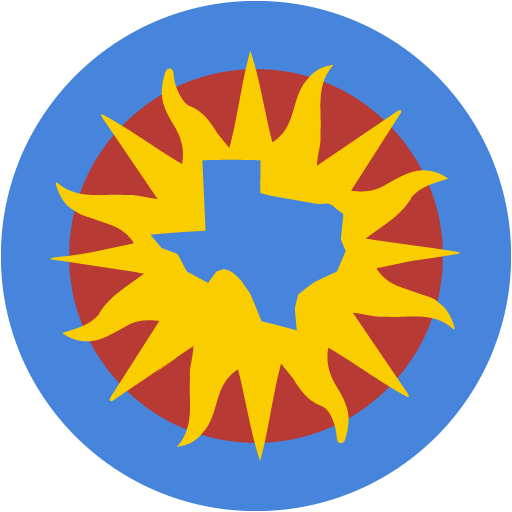¡Listos! by Meredith Clark and José Sologuren is a series of units for Heritage Spanish learners in grades 6-12. Three lessons aligned to the K12 Texas Essential Knowledge and Skills (TEKS) form four thematic clusters. Relevant scenarios related to personal life, college tasks, career readiness and civic participation frame each lesson and increase student engagement by making learning authentic and relevant to real issues that students face. Each lesson identifies an intermediate or advanced proficiency target that supports language acquisition in the interpersonal, interpretive and presentational modes. The project also provides teachers with a replicable approach to lesson design for adapting or creating their own materials.
Discussion Activities for Beginning Spanish Heritage Language Courses
Author(s):
Yanina Hernández, José E. Hernández, Mark Cisneros, Estela Hernández, Victor Tijerina, Blanca Jaimes-Luna, Andrea Lozano, Carolina Cárdenas, & Sarahi Zarate
Discussion activities baed on videos from the Spanish in Texas Corpus, a collection of video interviews with bilingual Spanish speakers in Texas (Bullock, Barbara E. and Toribio, Almeida Jacqueline. 2013. The Spanish in Texas Corpus Project. COERLL, The University of Texas at Austin.), found in COERLL’s Spin TX page: http://www.coerll.utexas.edu/spintx/home, and licensed under a CC BY-NC-SA license.
Resource Type: Lesson Units / ActivitiesEmpowering Learners of Spanish
Author(s):
Claudia Holguín Mendoza, Robert L. Davis, Munia Cabal Jiménez, Julie Weise, Kelley León Howarth, & Heather Quarles
ELS is a collection of activities based on critical pedagogies that serves to introduce students to a range of concepts in sociolinguistics and critical inquiry into language ideologies. Some of the activities are written in both English and Spanish, and resources are also in both languages. Working in two languages will allow students to reproduce the linguistic practices of bilinguals. Heritage learners of Spanish should find these practices familiar, and students learning Spanish as a second language will benefit from the scaffolding of using some English.
Resource Type: Lesson Units / ActivitiesLos talleres del español: materiales
Author(s):
María Luisa Parra
La misión de Los Talleres es generar recursos y apoyos pedagógicos para que los profesores de español amplíen y enriquezcan su trabajo en el aula con las y los jóvenes latinxs. La meta de los materiales es abrir espacios para que los estudiantes expandan sus recursos lingüísticos y culturales, reflexionen crìticamente sobre los diversos usos de de la lengua y participen, con su propia voz y afectividad, en un amplio rango de comunidades de habla, incluyendo la personal, la familiar, la académica y la profesional. Buscamos empoderar su identidad multilingüe y multicultural, así como su desarrollo integral. Los miembros de Los Talleres adoptamos una perspectiva dinámica sobre las lenguas y el uso que hacen de ella sus hablantes.
Resource Type: Lesson Units / ActivitiesSaber es poder: español para hablantes de herencia
Author(s):
Vianey Cabrera
This course is designed for heritage speakers of Spanish who have received little or no formal training in the language and for other linguistically qualified students or advanced non-native speakers. It will provide instruction to strengthen existing linguistic (reading, writing, speaking, and listening) skills while increasing awareness of the cultural heritage and knowledge the students already possess. Students will closely review specific language structures and some fundamentals of grammar while expanding their vocabulary and employing a writing process in their compositions.
Resource Type: Lesson Units / ActivitiesSpanish for Heritage Speakers Instructional Modules
Author(s):
Gabriela C. Zapata
This is a collection of instructional materials for the teaching of Spanish as a heritage language at the intermediate level, grounded in the tenets of the multiliteracies framework Learning by Design. The lessons are based on authentic materials produced by Latino writers and artists, and are organized in four instructional modules with a focus on topics relevant to heritage language learners: immigration, labor, family, and bicultural/bilingual identity.
Resource Type: Lesson Units / ActivitiesStudent Projects and Lesson Plans
Author(s):
Jocelly G. Meiners and Marco A. Pevia
Student Projects and Lesson Plans [CC] by Jocelly G. Meiners and Marco A. Pevia, is a collection of projects created by heritage Spanish students at The University of Texas at Austin. Under the framework of Open Pedagogy, students wrote news articles from their historic communities and folk stories from the Hispanic world. Along with the news articles and stories, there are lesson plans with activities that can be used or adapted for different levels of Spanish learning.
Resource Type: Lesson Units / ActivitiesTeacher-authored materials from the COERLL Collaborators program
Author(s):
Josie Jessier & Alex Zunterstein
Teacher-authored materials from the COERLL Collaborators program are a product of a school year’s worth of work. Teachers attended COERLL’s summer 2017 Spanish heritage language workshop, submitted lesson proposals, wrote their lessons, and edited and finalized their work based on feedback from the heritage Spanish project team.
- Videos for Elementary and Middle School Learners of Spanish [CC] by Josie Jesser (The Girls School of Austin)
- La Imaginación [CC] by Josie Jesser (a lesson plan to accompany one of the videos listed above)
- Spanglish en los medios de comunicación [CC] by Alex Zunterstein (University of Oregon)
Resource Type: Lesson Units / Activities
